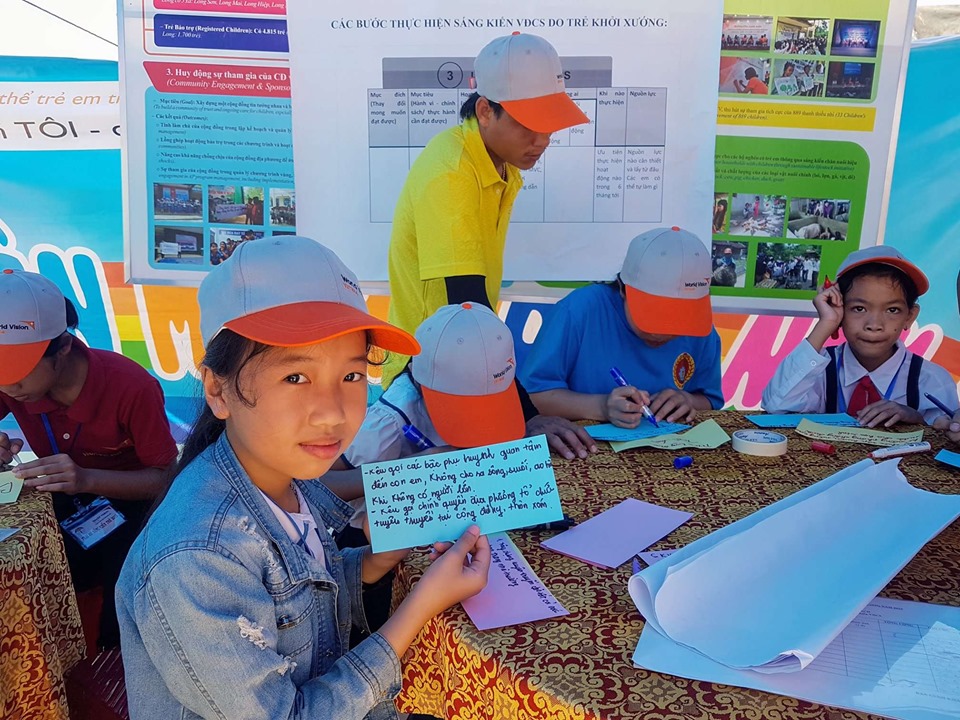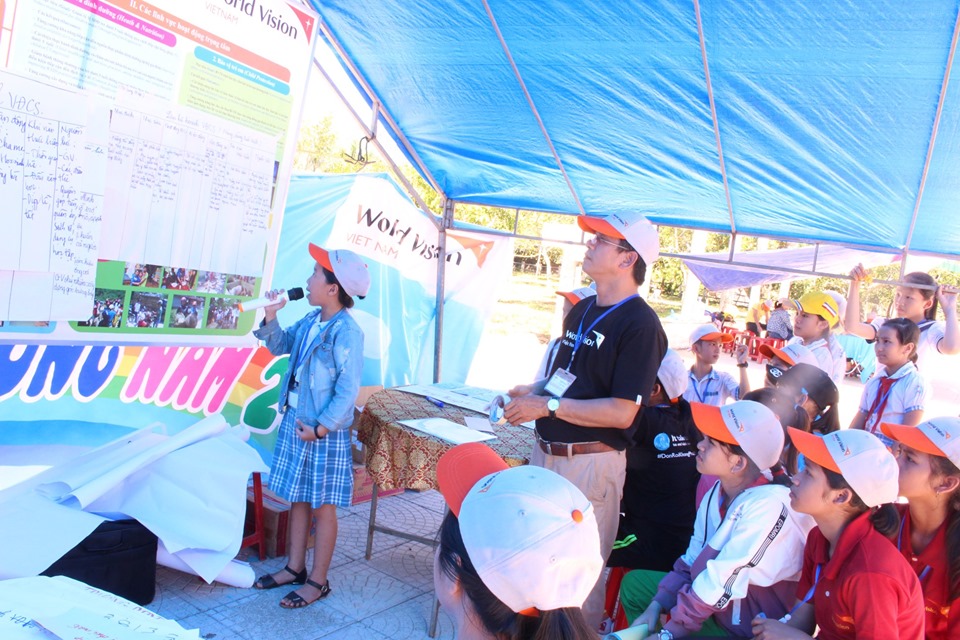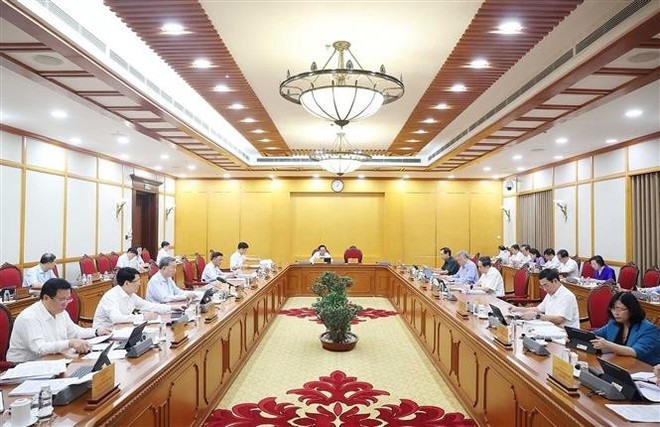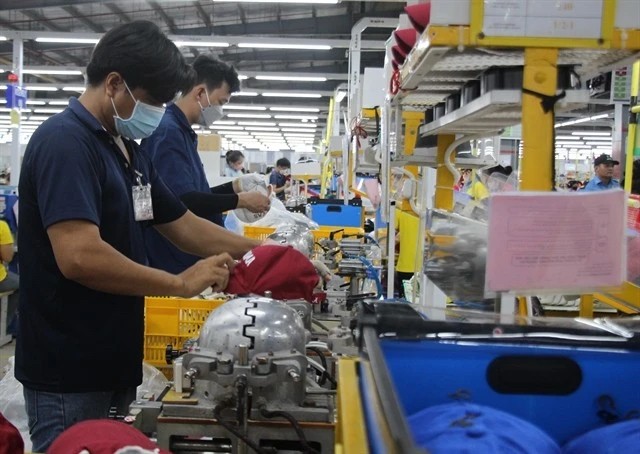World Vision Vietnam empowers children to speak up
 |
Children discuss solutions to reduce drowning among children. Photos: World Vision Vietnam
At the event, the children worked together to find solutions to some key issues that often put their safety and wellbeing at risk such as drowning, injury, violence in school, and child marriage.
Beside actions that can be carried out by children themselves such as conducting communication for parents and classmates, the children also came up with ways to escalate these matters to local authorities in their village and commune so that more resources will be invested in resolving the issues.
 |
“Lack of recreational options for children during their summer holidays was identified as a contributing factor to the increased risk of drowning among children,” said a student in the summer camp.
This summer camp is among many efforts of World Vision Vietnam to empower children to speak about matters affecting their lives and be part of the solutions that will improve their wellbeing.
World Vision is a Christian relief and development organization working to create lasting change in the lives of children, families and communities living in poverty. As a child-focused organization, WV’s work focuses on children, ensuring they are protected and their basic needs are met.
Currently, World Vision Vietnam is implementing 40 Area Programmes (APs) which operate in 5 zones: North (Hung Yen, Hoa Binh, Hai Phong and Dien Bien), Yen Bai – Tuyen Quang, Thanh Hoa, Central & Highlands (Quang Tri, Quang Nam – Da Nang, Dak Nong) and South (Quang Ngai, Binh Thuan, Ho Chi Minh City). WVV’s APs focus within one administrative district of a province which usually populated by ethnic minority people with high rates of poverty.
VNF/WVV
Recommended
 National
National
Vietnam News Today (Jun. 7): Prime Minister works with Estonian firms to accelerate projects in Vietnam
 National
National
Vietnam News Today (Jun. 6): Foreign Investment in Vietnam Surges in Five Months
 National
National
Vietnam News Today (Jun. 5): PM sets off for attendance at UNOC 3 in France, official visits to Estonia, Sweden
 National
National
Vietnam News Today (Jun. 4): Vietnam - Promising Candidate for Southeast Asia’s Next Powerhouse
Popular article
 National
National
Shangri-La Dialogue 22: Vietnam Highlights Some Issues of Ensuring Stability in a Competitive World
 National
National
Vietnam News Today (Jun. 3): PM Pham Minh Chinh to Attend UN Ocean Conference, Visit Estonia, Sweden
 National
National
Vietnam News Today (Jun. 2): Vietnamese Trade Mission Sounds Out Business Opportunities in United States
 National
National



